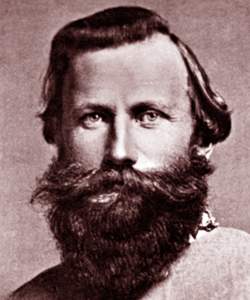J. E. B. Stuart (American National Biography)
Scholarship
Stuart left a singular reputation. His fondness for display and frivolity is well known. He assiduously cultivated a public image that anticipated by many decades the media-minded generals of later wars. Stuart was "as ambitious as Caesar," admitted one of his officers. Fellow general James Longstreet contended somewhat smugly after the war that Stuart was "of the best material for the cavalry service, but needing an older head to instruct and regulate him. By our indulgence," wrote Longstreet, "he became too large for his position."
Despite those failings, real or imagined, Stuart clearly enjoyed contemporary respect and popularity at all levels, both military and civilian. His chivalric "gay cavalier" reputation concealed and only rarely subdued his many talents as a Civil War cavalryman. He had no peer at gathering intelligence; he discovered and developed such talents as John S. Mosby, Pelham, and Thomas L. Rosser; and he transferred his personality to the Confederate cavalry in a fashion that improved its morale and military efficiency. His name must appear near the top on any list of significant Civil War figures.
Despite those failings, real or imagined, Stuart clearly enjoyed contemporary respect and popularity at all levels, both military and civilian. His chivalric "gay cavalier" reputation concealed and only rarely subdued his many talents as a Civil War cavalryman. He had no peer at gathering intelligence; he discovered and developed such talents as John S. Mosby, Pelham, and Thomas L. Rosser; and he transferred his personality to the Confederate cavalry in a fashion that improved its morale and military efficiency. His name must appear near the top on any list of significant Civil War figures.
Robert E. L. Krick, "Stuart, J. E. B.," American National Biography Online, February 2000, http://www.anb.org/articles/04/04-00966.html.




